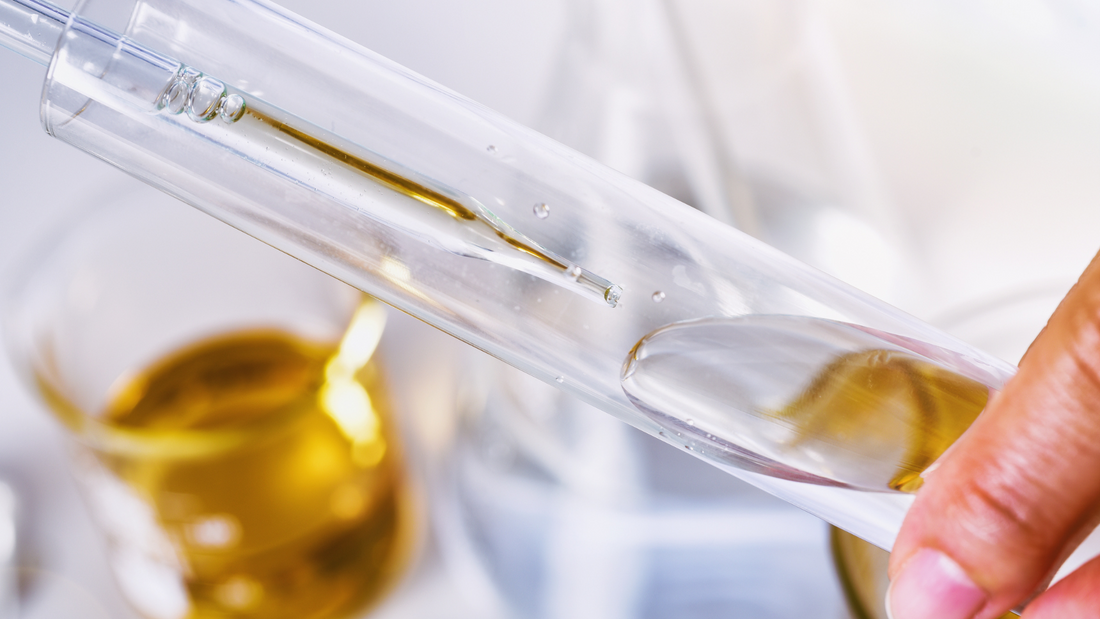CBD oils are obtained by blending a carrier oil, generally of vegetable origin, with hemp extracts. These extracts contain active molecules, separated from the plant mass by the producers.
Different extraction methods
Liquid chemical solvent extraction
This method involves soaking cannabis plants in solvents such as ethanol, butane or isopropyl alcohol. These solvents separate the cannabinoids from the plant material. The cannabinoid-laden liquid is then heated to evaporate the solvents. However, this method is criticized for its potentially harmful residues and environmental impact.
Supercritical CO2 extraction
Currently, the most common method, supercritical CO2 extraction, separates the plant's active molecules and isolates each cannabinoid independently. Supercritical CO2 is considered a green, non-toxic and non-polluting solvent, leaving no trace of chemicals in the finished product.
Vegetable oil extraction
This process involves infusing hemp in vegetable oil heated to a low temperature. The cannabinoids separate from the plant and enrich the oil. This method is often used by consumers wishing to make their own oil.
Cold-pressed extraction for CBD oil
Cold pressing: a pioneering extraction technique
Contrary to popular belief, CBD oil is not obtained by cold pressing. This process is reserved for carrier oils such as hemp seed oil. This choice preserves the integrity of hemp's cannabinoids, terpenes, vitamins and essential fatty acids. Although generating lower yields, this method produces pure, high-quality oils, rich in beneficial natural components.
Why is cold extraction more sought-after?
1. Preservation of natural components: Cold extraction preserves the hemp plant's natural compounds, unlike methods using heat or chemical solvents.
2. Exceptional purity: Without chemical solvents or high temperatures, the CBD oil obtained is of remarkable purity. It contains no potentially harmful chemical residues, making it safer for consumption. What's more, it offers a more natural, authentic taste and aroma.
3. Respect for the environment: Cold pressing is an environmentally-friendly method requiring less energy than CO2 or solvent extraction methods, and producing no chemical waste.
4. Efficacy and bioavailability: Cold-extracted CBD oils offer high bioavailability, enabling better absorption and utilization of cannabinoids by the body. This increased efficacy enhances the entourage effect, i.e. the synergy between the plant's various compounds.
From hemp to CBD oil
Refining and winter storageOnce the raw CBD oil has been obtained, a refining process known as winterizing removes solvents, chlorophyll, waxes and other undesirable lipids. The resulting hemp oil contains 70-90% CBD, cannabinoids and terpenes.
Types of CBD oils
- Full-Spectrum CBD: Contains all the natural cannabinoids and compounds of cannabis, including traces of THC.
- Broad Spectrum CBD: Similar to full spectrum, but with no trace of THC, thanks to an additional liquid chromatography step.
- CBD Isolate: Contains pure CBD (99%) in the form of a tasteless white powder, ideal for high doses of CBD.
CBD oil quality
CBD oil must be extracted from a high-quality hemp plant. A rigorous extraction process is crucial to ensure a reliable, high-quality product. Make sure the oil you use comes from a meticulous manufacturing process for confident consumption.
Our CBD oils
Discover our quality CBD oils made from cold-pressed hemp seeds and extracts.

